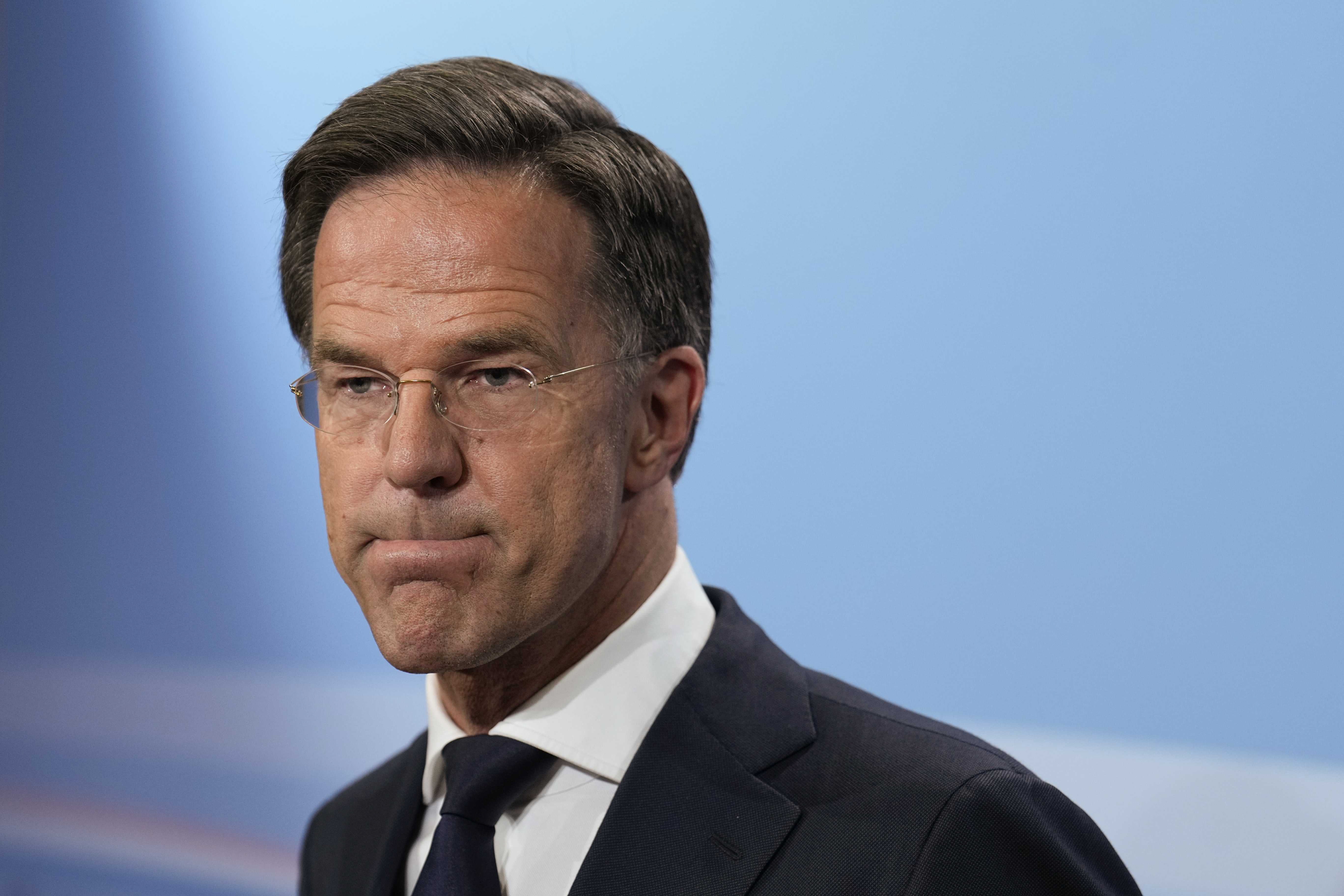‘Teflon Mark’ finally comes unstuck as Dutch PM says he will leave politics
Mark Rutte to end stint as the longest-serving leader in nation’s history in wake of his coalition government collapsing over immigration row

Dutch prime minister Mark Rutte has unexpectedly announced he will leave politics after a general election sparked by the collapse of his coalition government over an immigration row.
It marks the end of his run as the longest-serving government leader in the nation's history. Mr Rutte has been in power for 13 years, earning the nickname “Teflon Mark” because scandals that plagued his four different administrations did not stick to him.
Mr Rutte, the leader of the conservative People's Party for Freedom and Democracy (VVD), announced his decision at a hastily-arranged parliamentary debate. He said: ”Yesterday morning I made a decision that I will not be available again as a leader of the VVD. When a new cabinet takes office after the elections, I will leave politics.”
The Dutch leader's four-party ruling coalition resigned on Friday after failing to agree on a package of measures to rein in migration, an issue that often has divided the EU as a whole. He is now heading a caretaker administration until fresh elections can be held later in the year. But he told parliament he would not run for a fifth term in office and would leave politics following the elections.
Mr Rutte called his own move a “personal decision, regardless of the developments in recent weeks”. He said the coalition government’s resignation was a unanimous decision by the four partner parties, prompted by “irreconcilable differences”.
There is no immediate indication of who might replace Mr Rutte as leader of the VVD. The party's parliamentary faction is led by Sophie Hermans, Mr Rutte's former political assistant.
No date has been set for the election, but it is not expected before October or November.
In the 27-nation European Union, only Hungarian prime minister Viktor Orban has been in charge of a country longer than Mr Rutte, although their leadership styles could not be more different.
Mr Orban, in power for a full 13 years and counting, has turned Hungary into his vision of an "illiberal democracy" and increasingly smothered all dissent, while Mr Rutte navigated a Western democratic system at its most eclectic.
With uncanny political savvy, Mr Rutte at times managed to twist the arms of not just his coalition partners, but also opposition legislators to pass new policies and remain in charge of governments that provided enough glue to hold together his politically fractured nation of nearly 18 million.
In the house of representatives, the lower chamber of the Dutch parliament, no fewer than 20 parties are represented. To some extent, the diverse lineup reflects the European trend of the political centre losing ground to voices on the far left and particularly the far right. Mr Rutte has overseen a toughening of immigration policy, spurred by a rise of right-wing parties demanding the country’s borders be closed.
Mr Rutte steered the Netherlands through crises ranging from flooding to the shooting down of Malaysia Airlines flight MH17 over eastern Ukraine in 2014. Even his political opponents praised his handling of the aftermath of the plane's downing, which killed about 200 Dutch citizens.
But in recent years he has faced mounting criticism over his handling of farm policy and the climate crisis.
Mr Rutte also became known for seeking forgiveness for past Dutch government policies. When a parliamentary commission said that governments, several of which Mr Rutte led, had put energy profits before the safety of people in northern Groningen province, where earthquakes from gas extraction destroyed homes and the lives of families, he apologised.
"We stand here cap in hand," he said earlier this year.
Two years ago, his third government also resigned to take responsibility for a scandal involving investigations into child welfare payments that wrongly labelled thousands of parents as fraudsters, again hurting hundreds of innocent families. He pledged his government would continue working to compensate affected parents as quickly as possible.
"We are of one mind that if the whole system has failed, we all must take responsibility," Mr Rutte said.
His party, nevertheless, won the ensuing election and he formed his fourth government with the same four parties that made up the coalition that collapsed last week.
This time, though, the political rot set in early, and after 18 months, he was not only unable to hold together his coalition, he was accused by some of setting up its fall with demands that at least one party could not accept.
Despite the many scandals that tarnished his governments, Mr Rutte remained popular among voters. His departure throws the election door wide open and could enable a shift to the political left – or further to the right.
Jesse Klaver, leader of the opposition Green Left party, called it a "historic day" but said that ultimately, as Mr Rutte's fourth and final coalition crumbled in acrimony, "his departure was unavoidable".
Such was Mr Rutte's skill in reconciling political fire and ice that in recent years he has been tipped for the top job at both the European Union and Nato.
AP
Subscribe to Independent Premium to bookmark this article
Want to bookmark your favourite articles and stories to read or reference later? Start your Independent Premium subscription today.

Join our commenting forum
Join thought-provoking conversations, follow other Independent readers and see their replies